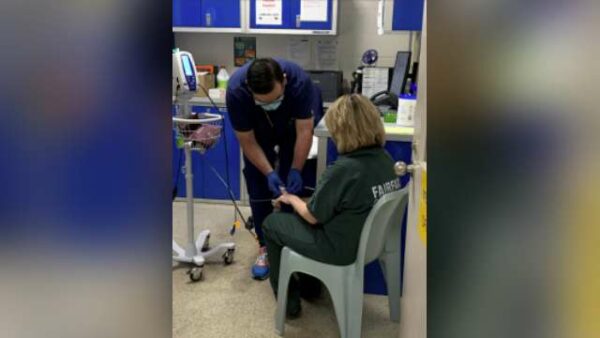
Fairfax County has provided drug or mental health treatment services to more than 2,100 people who would have otherwise wound up in jail since launching a diversion initiative five years ago, a recent report on the program says.
Released in August, the 2020 annual Diversion First report suggests the county’s efforts to emphasize support services over incarceration for people with mental health and substance use challenges are starting to pay off.
According to the report, Fairfax County’s jail population saw a 28% decrease from 2015 to 2020 in the number of people with behavioral health issues and misdemeanor charges, while the Fairfax-Falls Church Community Services Board’s Merrifield Crisis Response Center received 37% more cases per year between 2016 and 2020.
Since Diversion First launched on Jan. 1, 2016, total calls for service involving mental illness with police response have risen every year, from 3,566 calls in 2016 to 9,989 in 2020. It wasn’t immediately clear whether that means the number of cases has increased or they are receiving more attention.
“Over the past several years, there has been increased attention on people with mental illness, co-occurring substance use disorders and/or developmental disabilities who come into contact with the criminal justice system for low-level offenses,” Diversion First Director Lisa Potter said in a statement. “In addition, training and screening has increased, allowing for greater opportunities for identification, diversion, and referral and engagement in services.”
Fairfax County created the initiative in the wake of Natasha McKenna’s death at the Adult Detention Center in February 2015. Multiple sheriff’s deputies at the jail hit and used a Taser on McKenna, who had been diagnosed with schizophrenia, when attempting to transfer her to another facility.
While prosecutors declined to press charges in McKenna’s death, the county admitted that its jail had “become a warehouse for people with mental illness.”
“Diversion First offers alternatives to incarceration for people with mental illness, co-occurring substance use disorders and/or developmental disabilities, who come into contact with the criminal justice system for low-level offenses,” the initiative’s website says.
Diversion First has expanded from its initial focus on transferring individuals from police custody to the Merrifield Center, which provides behavioral health and substance abuse services, to also encompass housing and judicial components.
Introduced in 2017, the housing aspects of the initiative include money to assist with initial rents and deposits for Oxford House group recovery homes as well as a partnership with the nonprofit New Hope Housing to provide permanent housing.
“The [New Hope Housing] program has been successful in keeping 30 individuals housed while helping to decrease their rate of psychiatric hospitalization and time spent in jail. This program costs considerably less than what it does to house an individual in jail — more than 50% less,” the 2020 report says, adding that 39 people have been served with this outreach throughout the program’s history.
The county has also added specialty dockets to its court system for veterans, mental health, and a drug court.
Fairfax County Chief Public Defender Dawn Butorac says all three dockets have been going well, as the courts are looking to expand the number of accepted individuals. But she notes there’s room for improvement. Read More

